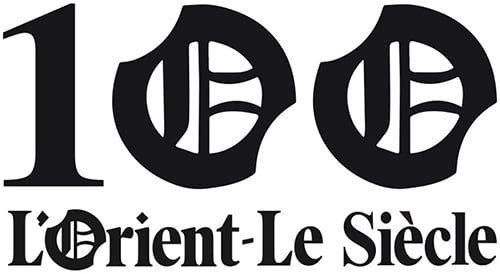A session of awareness to the negative impact of early marriages organized by the Lebanese NGO Akkar Network for development. Photo Akkar Network for development
Marwa is only 16. Yet it's been nine months since she got engaged to a man seven years her senior. In Hrar, a village in the Akkar region (Northern Lebanon), this is no surprise. It's quite the norm, actually. Two of her classmates have already dropped out of school to be wed. Four more are engaged. "In our traditional Sunni society, young people are not allowed to mingle without being engaged," explains Marwa. She should be married by next year, at the latest, that is the limit her father has consented to. She will be 17 and, she hopes, a high school graduate.
With a headful of dreams, the teenager wishes she could enroll at university in Tripoli, the capital of Northern Lebanon, study chemistry and open her own lab. Her fiancé though, is in a hurry, and wants to bring forward their wedding date. "I'm holding strong," she says. She also acknowledges the fact that he's "a poorly-educated mechanic earning an honest living" who hasn't come to terms with her professional ambitions. "He's tried to make me drop out of school. At the same time, he promises me a car to go to university in and the lab of my dreams..."
Fear of ending up a spinster
Marwa is an enamored teenager. At her fiancé's request, she has accepted to take a year off, once married, before going to university. But if she gets pregnant and her husband forbids her from pursuing her studies, or forces her to wear the Islamic abaya, as she fears, what will she do? "I can be stubborn", says the veiled teenager.
Marwa is the youngest of a very modest family, whose women are married off young, have children and take care of their household. "Life is more beautiful when you're married", she says with conviction.
Truth be told, the women of Hrar, Fneydek and Mechmech, as those of the Akkar's hinterland or other Lebanese rural regions, are brought up in fear of ending up an old maid. There's no room for mistakes, they are also not allowed to have sexual intercourse before marriage. Family honor would be tarnished. Taboos have it tough, although things are slowly changing. Marriage is the most secure way, according to the locals, of better protecting young women once they reach adolescence. Misunderstandings, marital discord, physical or verbal domestic violence are however, likely to ensue.
Disillusioned, most women regret having wed too early. Fatme, 17 and mother to a one-year-old, wonders "what she has done with her life." "Can a child raise a child?" she asks. She wishes she could have continued her studies, learnt English and computer science, but her husband refused on the grounds she that she would mix with boys at school. He even forbids her from seeing her female friends. "I am confined within the house, taking care of my son and washing the dishes" she admits sadly. "Her husband is generous" insists her mother.
It is within this context that the organization "Akkar Network for Development" (AND) intervenes, led by a dynamic "child" of the region, Nadine Saba. Her aim is to fight violence against women in all of its aspects, including early marriage. "We have no ambition to change mentalities or habits. But we can give the hornets' nest a poke." Nadine Saba is realistic. The only way for her association to protect women and teenage girls is to raise their awareness on their rights, health and the laws in place, and to launch development projects in this region struck by poverty. She has become involved in forest protection, waste recycling initiatives, and even road repair, to encourage youngsters to participate in community work and help them develop their skills.
Starting out with projects that don't cause controversy
How does AND achieve its goals? "We prioritize projects that don't cause too much controversy; such as child labor, marriage registry, family and religion. We create a relationship of trust with local communities and religious leaders," Saba explains, "because we won't be able to have access to women if we choose confrontation." Instead it's during awareness sessions, or life-skill workshops (sewing, literacy, computer science...) that taboos are brought up by psychotherapists and social workers. Among them are domestic violence, family planning, reproductive health and negative consequences of early marriage.
"Over time, women start to talk more openly about what bothers them. They ask for information on pregnancy and contraception," Saba remarks. Some even manage to gain a certain level of financial independence by working from home. "At that point we can work with women victims of abuse or violence. And we can manage to convince mothers and teenage girls to delay marriage, at least until the girl has had the chance to graduate from high school," Nadine Saba explains.
While hoping for the introduction of a national development policy in the Akkar which could offer these young girls alternatives, Nadine Saba, the AND and its sponsors are driven on by their successes. A mother impatient to get her 16-year-old daughter wed came to understand the physical and psychological health risks her daughter could encounter. "Not until she graduates," she now promises. Even better, local men are now lending an ear, in the context of group discussions.
(translated by Caterina Belardi)
For more information
https://www.facebook.com/ANDlb/?pnref=lhc
sur Twitter : @AkkarAND

commentaires (2)
PEINE PERDUE... LA CHOSE EST DEJA INCRUSTEE DANS LEURS LOBES... SURTOUT CEUX DES MARIS...
LA LIBRE EXPRESSION
21 h 56, le 07 juillet 2016